SUMMARY
This is AI generated summarization, which may have errors. For context, always refer to the full article.
![[Vantage Point] The curious case of premature sugar importation](https://www.rappler.com/tachyon/2023/02/TL-curious-case-premature-sugar-importation-February-25-2023.jpg)
The accusation made by Senator Risa Hontiveros that the state is involved in ‘government-sponsored [sugar] smuggling” is not without basis.
The crux of Hontiveros’ allegation centers on how some 440,000 metric tons (MT) of sugar landed on our shores without clearance from the Sugar Regulatory Administration (SRA). Let’s trace the events leading to the importation.
- On February 17, the Bureau of Customs’ (BOC’s) Intelligence Group flagged the irregular entry from Thailand of 250 MT of refined sugar consigned to All Asian Countertrade, Inc. Batangas Customs’ Field Station Chief Jose Mari C. Rongavilla requested the necessary SRA clearance for the importation, but got none. The importation was later found to be part of the 440,000 MT that entered the country much ahead of the effectivity of Sugar Order No. 6 (SO6).
- On February 15, the Philippine Sugar Millers Association (PSMA) was alarmed by the news that 260 containers loaded with sugar arrived at the Port of Batangas on February 9 and an unspecified volume was allegedly released from Customs without clearance from the SRA.
- On February 6, the sugar order was signed by Department of Agriculture (DA) Undersecretary Domingo F. Panganiban; Acting SRA Administrator David John Thaddeus P. Alba, and Acting Board Members Ma. Mitzi Mangwag and Pablo Luis S. Azcona, who represent millers and planters, respectively. The SO6, however, was not signed by President Ferdinand R. Marcos Jr. who doubles as the country’s agriculture secretary. This, I find intriguing. Was it deliberate on the President’s part to do away with affixing his signature on a very important document? Or his people went ahead, assuming that he was perfectly fine with it? Either way, it doesn’t look good for a leader of a nation who we expect should lead by example. A signature acts as a form of identification of the signatory and confirmation of the contents of a document. It is an affirmation that whatever document is signed, is indeed true, real, and valid. It also anchors the agreement to a legally binding, enforceable, actionable reality as it conveys the identity of the parties entering into an agreement and the definitive acceptance of the contract by the parties themselves. Why he skipped this fundamental legal act certainly leaves a bad taste in the mouth.
- On January 13, in a memorandum [obtained by Rappler] addressed to DA Undersecretary and SRA board chair Domingo F. Panganiban, Executive Secretary Lucas P. Bersamin told Panganiban: “This refers to your recommendation to the President, in his capacity as DA Secretary on the 2nd Sugar Import Program for Crop Year 2022-2023 … the DA is hereby directed to implement the abovementioned recommendations, to ensure adequate supply of sugar in domestic markets …”
According to Hontiveros, SO6 – which allowed the importation – became effective on February 18, three days after it was received by the UP Law Center. She explained that applications could then be received between February 19 and 23, and awards released five days after the last day of submission. This led her to file Resolution No. 497 which calls on the Committee on Public Accountability and Investigations to probe the arrival of sugar shipments ahead of SO6 and any “possible provisions in SO6 that may be open to abuse, patronage and cartelization.”
Highly irregular, acting in haste
Stakeholders identified with the PSMA told Rappler that said importation is in “defiance of the long-established rules and legal requirements on sugar imports.” They said that the participation of importers is required in an import program covered by an official Sugar Order.
The Sugarcane Industry Development Act of 2015″ (SIDA) or Republic Act (RA) 10659 mandates that importers must secure from SRA the classification of the imported sugar “prior to its release from the Bureau of Customs.” Without a valid SRA Clearance, the stakeholders claimed, the imported sugar is considered illegal. They added that the “irregular sugar importation is an existential threat to the sugar industry [especially] if no proper action is taken as it may lead to a deluge of unauthorized sugar imports.”
Customs Intelligence Group Deputy Commissioner Juvymax Uy said: “We cannot stress it enough: it is unlawful to bring products into the Philippines without the proper permits.” In published reports, Office of the Executive Secretary (ES) Undersecretary Leonardo Roy Cervantes confirmed that the BOC indeed required clearance from the SRA to release the importation, but neither confirmed nor denied if the imported sugar was illegal: “I could not reply, or categorically say yes or no right now.”
Panganiban admitted in a press briefing that he made a hasty decision [remember that it was he who made the recommendation to the President as early as January] when he allowed the importation carried out by three companies – Sucden Philippines, Inc., Edison Lee Marketing Corp., and All Asian Countertrade Inc. – which he claimed were handpicked from a three-page list.
He confessed that he mistook the memo from the Office of the ES for approval and was also driven by the desperate need to lower sugar prices. “I acted with haste and interpreted the memorandum issued by the Office of the Executive Secretary as an approval to proceed with the importation,” Panganiban said.
“With the urgency of the situation, I instructed three capable and accredited companies to proceed with the importation of the sugar, provided that they agree to reduce the prices of sugar.” Although he knew that that sugar importation has to pass through an SRA process, he thought that the memo was a “sugar order.”
Stakeholders, however, scoffed at Panganiban’s confession. They expressed dismay that the 440,000 MT of sugar had already entered the country. “Who should be held accountable for this?” they fumed, noting that Panganiban did not accept full responsibility. “Is he acting alone?” they wondered. They also pointed out that one of the importers, Sucden, is 100% American-owned. “Why choose a foreign entity over local sugar importers such as Victorias Milling or Universal Robina? We’d like to know if there was proper vetting for the selection.”
The situation certainly feels like a case of déjà vu.
In August 2022, SO No. 4 stirred up a hornet’s nest because President Marcos Jr. deemed it “unauthorized” because he was not consulted. He promised that “heads will roll.” On August 14, SRA official Roland Beltran quit his post as the millers’ representative “for health reasons.” His resignation was promptly accepted by then ES Vic Rodriguez, but “without prejudice to any investigation that may be conducted in connection with the issuance of SO4.”
Beltran was one of the signatories of the “illegal” sugar importation order, which would have allowed the importation of 300,000 metric tons of sugar by the third quarter of 2022. Other resignations in SRA followed, and Congress called for the whole “mess” to be investigated. Nothing was heard of about the issue since then.
Proper vetting
Based on the general information sheet submitted by Sucden to the Securities and Exchange Commission (SEC), the firm is 99.993% American-owned. Rappler also found out from Sucden’s latest financial statement that the company suffers from net capital loss and has no financial standing.
An independent auditors’ report prepared by Reyes Tacandong & Co. reveals that, as of December 31, 2022, the company has a capital deficiency of $394,103 and $35,784 “resulting from continuing losses.” The report concludes: “This condition raises doubt on the Company’s ability to continue as a going concern.” Efforts to reach Sucden and any of its representatives for comment proved futile.
Reyes and Tacandong Audit by Rappler
Sucden Philippines Inc Stat… by Rappler
Hontiveros said there seemed to be people who “jumped the gun… since it isn’t covered by SO6, where the awarding of the allocation won’t be until February 24th, [and that] there is no other conclusion but to say that these sugar shipments are smuggled.”
What is disturbing to me is that there is no yardstick for assigning allocations to importers. This is dangerous because it could lead to the DA allotting any amount to anyone, devoid of restrictions. We cannot blame industry stakeholders then for suspecting that allocations are being given to favored companies.
Lost in this saga is the fact that local refineries are left to fend for themselves.
I believe that the government should mandate that industrial users and refineries be given preference to import sugar and that raw sugar be imported in bulk and not as refined or finished products in 50-kilo bags. Raw sugar can be refined locally to utilize Philippine refineries which would translate to jobs for local sugar workers.
There was a time when the SRA divided the allocation of imported raw sugar among local refineries, and what was refined was allotted among end users. Now is the time to provide full and genuine support for local millers and refiners and all industry stakeholders. – Rappler.com
Val A. Villanueva is a veteran business journalist. He was a former business editor of the Philippine Star and the Gokongwei-owned Manila Times. For comments, suggestions email him at mvala.v@gmail.com.
Add a comment
How does this make you feel?


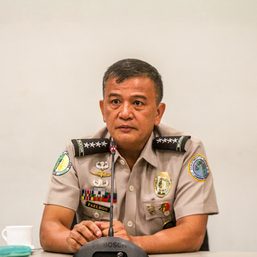

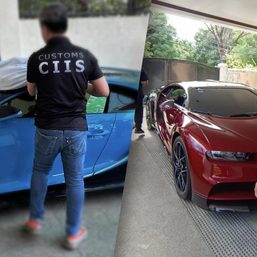
![[In This Economy] Marcos’ POGO ban is popular, but will it work?](https://www.rappler.com/tachyon/2024/07/thought-leaders-marcos-pogo-ban.jpg?resize=257%2C257&crop=255px%2C0px%2C720px%2C720px)
![[Rappler Investigates] POGOs no-go as Typhoon Carina exits](https://www.rappler.com/tachyon/2024/07/newsletter-graphics-carina-pogo.jpg?resize=257%2C257&crop=424px%2C0px%2C1080px%2C1080px)









![[OPINION] Rodrigo Duterte and his ‘unconditional love’ for China](https://www.rappler.com/tachyon/2024/04/rodrigo-duterte-xi-jinping-august-2019.jpeg?resize=257%2C257&crop=91px%2C0px%2C900px%2C900px)
![[Vantage Point] China’s silent invasion of the Philippines](https://www.rappler.com/tachyon/2024/07/TL-china-silent-invasion-july-16-2024.jpg?resize=257%2C257&crop=318px%2C0px%2C720px%2C720px)

![[EDITORIAL] Ang ‘deep, deadly web’ ng POGOs](https://www.rappler.com/tachyon/2024/07/animated-pogos-chinese-crime-syndicate-carousel.jpg?resize=257%2C257&crop=280px%2C0px%2C720px%2C720px)

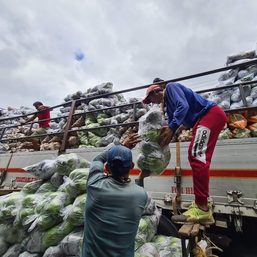
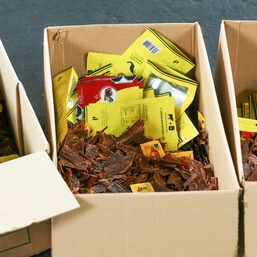
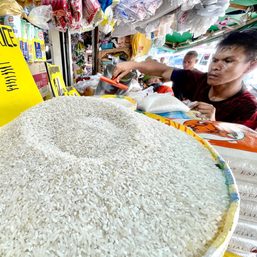
There are no comments yet. Add your comment to start the conversation.